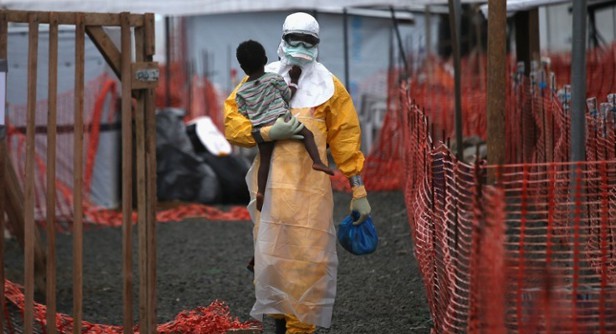
Some nine million children have seen “death and suffering beyond their comprehension,” and protecting them and their communities is critical in the fight against Ebola in West Africa, the UN Children’s Fund (UNICEF) said in a report released this week.
UNICEF said the report, which was released concurrently in the Senegalese capital of Dakar, Geneva, and New York, “looks at the dramatic impact Ebola has had on children as it hit some of the most vulnerable communities in some of the world’s most vulnerable countries.”
Of the more than 24,000 people infected in the current outbreak, some 5,000 are children. For many of them, the diagnosis of Ebola was an almost a certain death sentence: recent data show a fatality rate of 80% for children under five years-old and 95% for children under a year-old. Meanwhile, more than 16,000 children have lost one or both parents or their primary caregiver, according to UNICEF, and at least 3,600 have been orphaned.
“For many of the nine million children living in affected areas, Ebola has been terrifying,” the agency said. “These children have seen death and suffering beyond their comprehension.”
The report also points to the central role communities are playing in the response and shows encouraging trends in safe behaviors.
“In Liberia, for example, a survey indicates that 72 percent of people believe anyone with Ebola symptoms will get better care at a treatment center, which is significant because many used to keep Ebola victims at home, spreading infection in the community,” according to the agency.
The report’s release comes just a day after Liberian health authorities confirmed the first new case of Ebola in more than 2 weeks, dashing any hopes that the country would be declared free of the disease that has affected more than 24,000 people with more than 10,000 deaths.
“The outbreak will not be over until there are zero cases, and every single contact has been traced and monitored. We cannot afford to let our guard down,” Barbara Bentein, UNICEF’s Global Emergency Coordinator for Ebola, said in a press release.
“At the same time, basic services need to be re-established safely and responsibly, using the assets of the response,” she added.
UNICEF, which helped minimize the risk of Ebola infections when schools reopened following months of closures that left 5 million children out of school, noted that investing in improving health care systems in Ebola-affected countries will help tackle other diseases such as measles, pneumonia and diarrhea, which take a heavy toll on children.
Experts have warned that the secondary effects of Ebola — namely, its devastating impact on the health care system — could end up being deadlier than the disease itself. In the aftermath of the outbreak, childhood vaccination rates have dropped by as much 75%, leaving millions of children vulnerable to infectious diseases. One recent study projected that the drop in immunization coverage in the affected West African countries could result in up to 16,000 excess deaths from measles alone.
